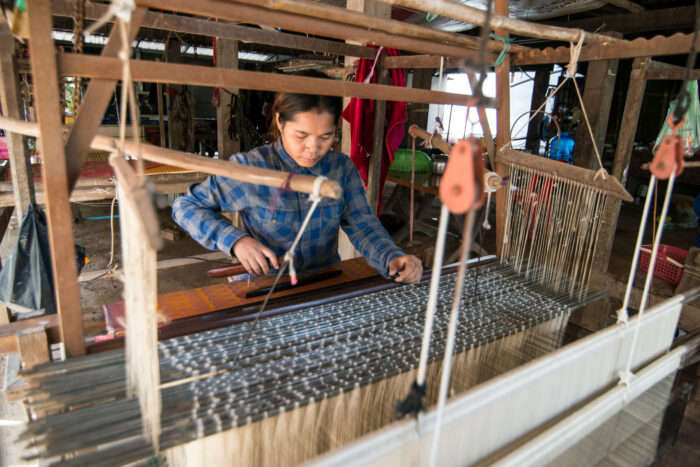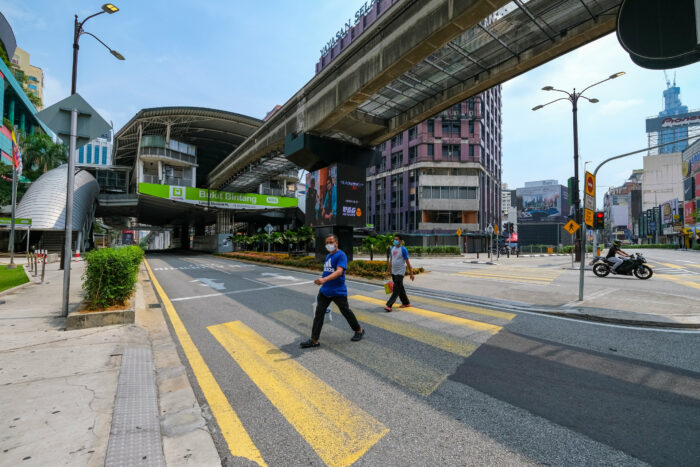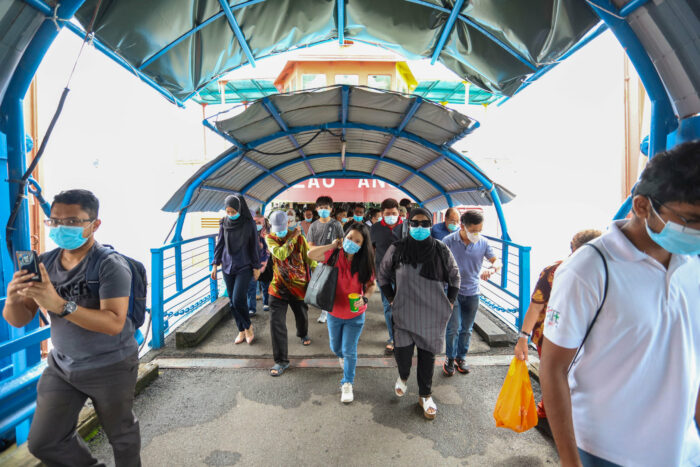Australia mandates vaccination for service workers in Northern Territory

Australia’s Northern Territory has made it compulsory for anyone serving the public at work to be vaccinated against COVID-19.
Workers in Vietnam see fall in wages in Q3’2021 due to COVID-19

Male workers are also receiving a higher average monthly wage as compared to their female counterparts.
Thailand sees 222,871 jobs created in October

As the country gets ready to reopen its borders on November 1, the Labour Ministry has announced that 222,871 jobs have been created.
New Japan PM to prioritise wage raises

Besides prioritising wage raises, the prime minister also said that he plans on a capital gains taxes discussion sometime in the future.
Taiwan to launch online platform for migrant workers next year

Minister of Labour Hsu Ming-chun has said her ministry will be launching an online platform to allow migrant workers to self- submit applications.
Malaysia to curate programme to help SMEs with cash flow problems

The most common reasons why SME bank loan applications get rejected are insufficient cash flow, an unviable business, and high levels of debt.
Cambodia conducts rapid testing for COVID after major holiday

All public and private institutions have begun testing employees and officials for COVID-19 after the recently concluded Pchum Ben festival.
Japan business association advocates taking on of secondary jobs

The Japan Federation of Employers’ Associations says taking on secondary employment can result in a more productive workforce.
Measures to ease SME cash flow called for in Malaysia’s Budget 2022

Businesses are looking at cash flow continuity and survival, especially in industries hit hard by the pandemic, said the SME Association of Malaysia.
Singapore’s unemployment rate falls to 2.7% in August

The overall unemployment rate in August fell by 0.1 percentage point to 2.7% month-on-month, due to a temporary easing of labour demand.
Thailand plans to help SMEs retain workers

A new project will help generate new jobs, maintain employment for about 400,000 workers and subsidise the income of over four million workers.
Singapore recovers US$266 million from overpayment of wage subsidies

The government has recovered S$361 million (US$266 million) from 4,862 firms to remedy overpayments in the Jobs Support Scheme (JSS).
Taiwan decides on minimum wage hike of 5.21%

Labour groups had previously called for a wage hike of 6 to 8%, while business groups urged for the minimum wage not to be increased by over 3%.
Cambodia’s minimum wage hike not enough for workers’ basic needs

Western buyers of Cambodian apparel and footwear goods have been urged to prod suppliers towards paying a living wage to factory workers.
Malaysia has disbursed over RM$330 billion of subsidies

As of September 24, the support packages have benefited some 20 million Malaysians, and 2.4 million businesses.
New Zealand employers urge for mandatory vaccine passports

The Employers & Manufacturers Association (EMA) is calling on the government to mandate workers to carry digital vaccine passports to enter workplaces.
Thailand approves subsidies to help SMEs keep staff employed

To help about 480,122 struggling small businesses keep five million employees employed, the government is planning to roll out subsidies.
Business groups in the Philippines call for restrictions on unvaccinated

About 13 business groups have asked the government to restrict the mobility of unvaccinated individuals and to step up mass inoculations.
Employment of older workers in Singapore rose in 2020

The employment rate of workers aged 55 to 64 has held steady at over 67%, despite the pandemic, says Singapore’s Manpower Minister.
Employers in Cambodia urged to test staff for COVID-19 after public holiday

All employers have been told to test staff for COVID-19 after they return to work after the three-day Pchum Ben holiday or Ancestors’ Day.
Malaysia’s wage subsidies saved 2.9 million jobs to date

The allocation of RM18 billion (US$4.3 billion) in wage subsidies has helped 2.9 million workers in the country keep their jobs so far, reports HR minister.
Workers in HCM City to benefit from unemployment insurance allowances

About three million workers in Ho Chi Minh City stand to gain from the unemployment insurance fund with total allowances of about VND6 trillion.
Australia’s casual workers hit hard by COVID-19 lockdowns

From May to August, there was a loss of 175,000 casual jobs, which represented 72% of all the jobs lost across the labour market.
Auckland businesses urge mandate of “no jab, no job” regulation

Businesses in Auckland are calling for government-mandated vaccination at workplaces amid a lockdown that has lasted seven weeks.
Japan sees first drop in job availability in four months

The country’s job availability fell for the first time in four months in August as the government expanded the state of emergency over more regions.
Brunei doles out financial support to retrenched, furloughed workers

The new support measures are aimed at helping struggling individuals and businesses stay afloat amid extended COVID-19 restrictions.
Reinvigorating your workforce to be future-ready

A recent SAP SuccessFactors webinar highlighted how organsiations can successfully deploy technology to upskill and reskill employees.
Vietnam steps up urban employment drive

The Ministry of Labour – Invalids and Social Affairs (MOLISA) has set a target of bringing a million workers back to being employed by the end of 2021.
Taiwan likely to increase minimum wage next year

The Minister of Economic Affairs has thrown her support behind an increase in the minimum wage, ahead of a final decision on October 8.
Thailand budgets US$1.3 billion job support for small businesses

The country’s planning agency is launching a 45.4-billion-baht (US$1.4-billion) stimulus package to help small businesses keep jobs.
